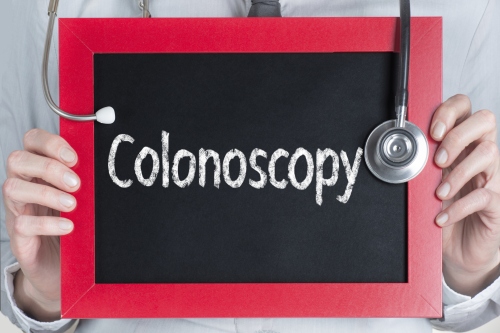New colon cancer tests can’t replace colonoscopy
Cancer and precancerous diseases identified, treated during procedure
 New tests for colon cancer continue to make headlines – but colonoscopy is the only procedure that can both test for cancer and remove precancerous polyps at the same time.
New tests for colon cancer continue to make headlines – but colonoscopy is the only procedure that can both test for cancer and remove precancerous polyps at the same time.
“Certain types of colon polyps can turn into colon cancer, others do not,” explains Dr. Aaron Brosam, gastroenterologist at HCMC. “It’s not always easy to identify which polyps are precancerous just by looking at them, so we take them all out and send to a pathologist to look. If they are adenomas, they are the kind of polyps that can turn into colon cancer, so taking them out completely reduces the risk of developing colon cancer.”
If one of these polyps is found to be precancerous, patients are at increased risk of developing more, so more frequent screenings are recommended. Age is the biggest risk factor for colon cancer. Smoking, obesity, family history of colon cancer in young or multiple close relatives (1st or second degree), inflammatory bowel disease (ulcerative colitis or Crohn’s disease), and genetic syndromes that cause colon cancer are some other risk factors. Many symptoms of these diseases can be seen during colonoscopy.

Dr. Aaron Brosam
“Colon cancer often doesn’t have any warning signs, which is why we screen before symptoms develop,” says Dr. Brosam. “If symptoms do develop, they can include rectal bleeding, iron deficiency anemia, abdominal pain or change in bowel habits.” Sometimes blood loss from another source, like abnormal menstrual bleeding or celiac disease (which cause iron deficiency) can mask blood loss from cancer.
As far as colonoscopy replacement tests, the technology is there. A pill camera was recently approved for screening patients who’ve had an incomplete colonoscopy, and improved tests that require patients to collect samples from home will soon be available; however, all colonoscopy replacement tests rely on having a colonoscopy after diagnosis to remove or visualize any polyps or cancers that are found. Additionally, the pill camera and CT colonography (a CT scan that looks at the colon) still require (the “dreaded”) prep, and CT colonography requires the colon to be distended, which can be uncomfortable.
So how can we reduce our risk for colon cancer? “Don’t get old,” jokes Dr. Brosam, “but seriously, age is an unavoidable factor, which is why we recommend a colonoscopy at age 50.”
More attainable goals to reduce your risk of colon cancer include smoking cessation, a healthy lifestyle (eating well, exercising), and heeding your doctor’s order for colonoscopy.
“Don’t wait for the next ‘easy’ test to be developed – because cancer won’t. If you’re concerned about any discomfort surrounding colonoscopy, be reassured that many of them have been significantly minimized. Unfortunately, there’s not yet a ‘magic pill’ to screen and treat colon cancer. Colonoscopy is the only procedure available that comes close to doing both.”
To schedule an appointment for a colonoscopy call 612.873.6963 (612.873.MYMD).

